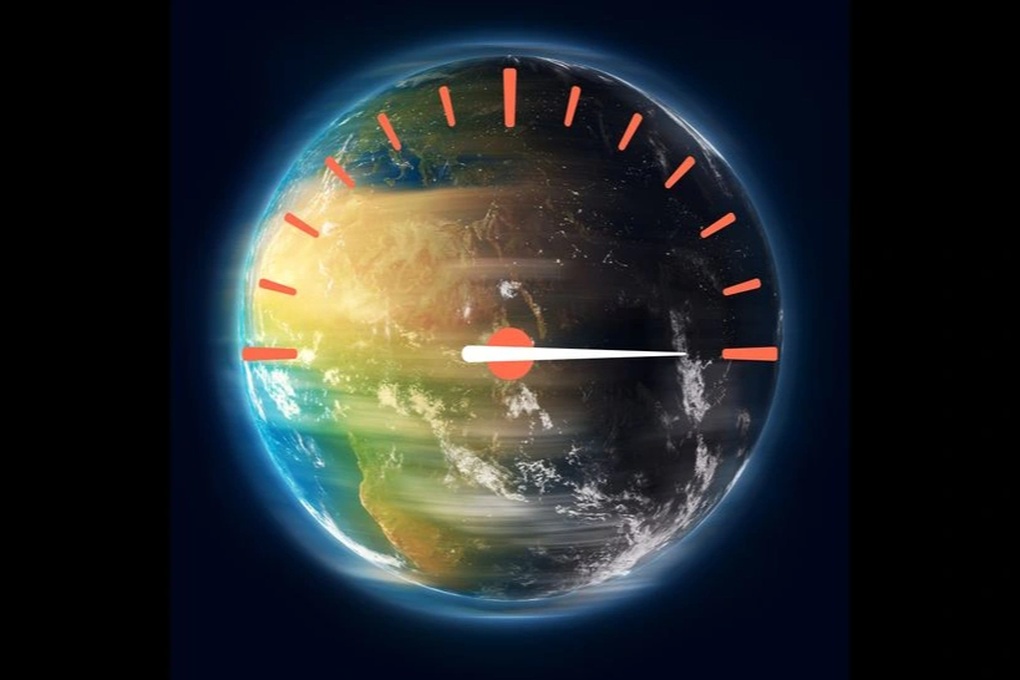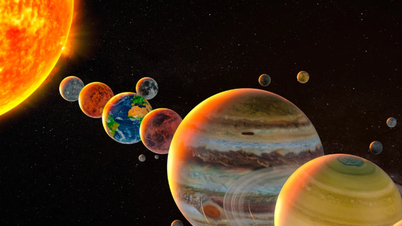Second shortest day in history

Earth is experiencing one of its shortest days ever, and there will be many more days to come (Photo: Canva).
According to data from precise timekeeping systems, our planet ends a day about 1.34 milliseconds earlier than the standard 24-hour mark, a tiny deviation that humans cannot perceive, but has great significance in scientific research on Earth dynamics.
Since ancient times, scientists have determined that the Earth's rotation has been slowing down over time due to tidal friction from the Moon, causing the Moon to gradually move away from the planet and lengthen Earth's days. According to a 2023 study, billions of years ago, a day was only about 19 hours long.
However, something unexpected happened: the Earth started spinning faster, and rotation records kept being broken.
Previously, the fastest rotation record belonged to July 10, with a time 1.36 milliseconds shorter.
There's no official confirmation from IERS or TimeAndDate yet, but on July 22, the Earth's rotation period shortened by about 1.34 milliseconds, which will certainly put it in the second-shortest spot of the year, surpassing the upcoming August 5 (which is forecast to be only 1.25 milliseconds shorter).
Reversing a million-year trend

Scientists have not been able to explain the phenomenon of the Earth's rapid rotation (Photo: Getty).
This unusual acceleration has baffled scientists. Atmospheric and ocean models have not been able to fully explain the unusual short-term fluctuations.
Several studies, including the 2024 report, suggest that polar ice melt and rising sea levels could change the distribution of mass on Earth's surface, thereby affecting rotational angular momentum.
However, instead of making the Earth spin faster, this factor appears to contribute to slowing down the rotation.
One theory gaining traction is a change in the motion of Earth's liquid core. If the core slowed down, the mantle and outer crust could spin faster to conserve angular momentum, leading to the shortening of the day we're seeing.
According to Professor Leonid Zotov from Moscow State University, one of the leading experts on the Earth's rotation, the real cause of this acceleration remains unclear.
He predicts that the acceleration is only temporary, and that Earth will likely slow down again in the coming years, continuing a long-term trend that dates back millions of years.
While the shortening hasn’t yet affected everyday life, it could lead to significant changes in the near future. If the trend continues, scientists may be forced to subtract a second from atomic clocks (called a “negative leap second”) around 2029.
This is unprecedented and could have profound implications for GPS, communications, finance and aviation systems, which rely on absolute precision in timing.
Source: https://dantri.com.vn/khoa-hoc/trai-dat-vua-trai-qua-ngay-quay-nhanh-ky-luc-20250722084858440.htm


![[Photo] Prime Minister Pham Minh Chinh chairs the 14th meeting of the Steering Committee on IUU](https://vphoto.vietnam.vn/thumb/1200x675/vietnam/resource/IMAGE/2025/9/23/a5244e94b6dd49b3b52bbb92201c6986)
![[Photo] Editor-in-Chief of Nhan Dan Newspaper Le Quoc Minh received the working delegation of Pasaxon Newspaper](https://vphoto.vietnam.vn/thumb/1200x675/vietnam/resource/IMAGE/2025/9/23/da79369d8d2849318c3fe8e792f4ce16)

























































![[Photo] Solemn opening of the 1st Congress of Party Delegates of Central Party Agencies](https://vphoto.vietnam.vn/thumb/402x226/vietnam/resource/IMAGE/2025/9/24/82a89e250d4d43cbb6fcb312f21c5dd4)



































Comment (0)